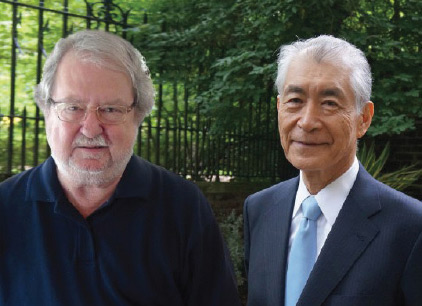The first Tang Prize for Biopharmaceutical Science has been awarded to James P. Allison, PhD, Chair of Immunology at The University of Texas MD Anderson Cancer Center and Tasuku Honjo, MD, PhD, of Japan’s Kyoto University for their research leading to cancer immunotherapy.
“Both scholars’ discoveries have opened a new therapeutic era in medicine,” said Lee Yuan-tseh, PhD, Taiwan’s winner of the 1986 Nobel Prize in chemistry, at the award announcement in Taipei, Taiwan in June.
Taiwanese entrepreneur Samuel Yin established the biennial Tang Prize in December 2012. The 2014 prizes provide a cash award [in New Taiwan dollars] of NT$40 million ($1.3 million) and research grant of NT$10 million (approximately $333,000).
Immune Checkpoint Blockade Discoveries
Dr. Allison launched an entirely new way to treat cancer by blocking molecules on immune system T cells that turn off immune response. The treatment, called immune checkpoint blockade, grew out of his basic science research to understand the biology of T cells—the immune system’s customized attackers.
“Receiving the Tang Prize is a great honor for me, as well as recognition of the growing importance of cancer immunotherapy,” Dr. Allison said.
Dr. Allison developed an antibody to block CTLA-4, an off-switch on T cells, to unleash immune attack on tumors. Ipilimumab (Yervoy), a drug based on his antibody, has extinguished untreatable late-stage melanoma in 22% of patients in clinical trials for 3 years or longer, unprecedented results. FDA approved ipilimumab for metastatic melanoma in 2011.
Dr. Honjo discovered the second immune checkpoint on T cells, called PD1. A variety of experimental drugs to block PD1 and its activating ligand, PD-L1, are showing great promise in clinical trials.
Dr. Allison and Dr. Honjo were selected from hundreds of international nominees for the award, which recognizes original research that has led to significant advances in preventing, diagnosing, and treating major human diseases. Academia Sinica, Taiwan’s preeminent academic organization, similar to the National Academy of Sciences in the United States, administered award selection. ■


